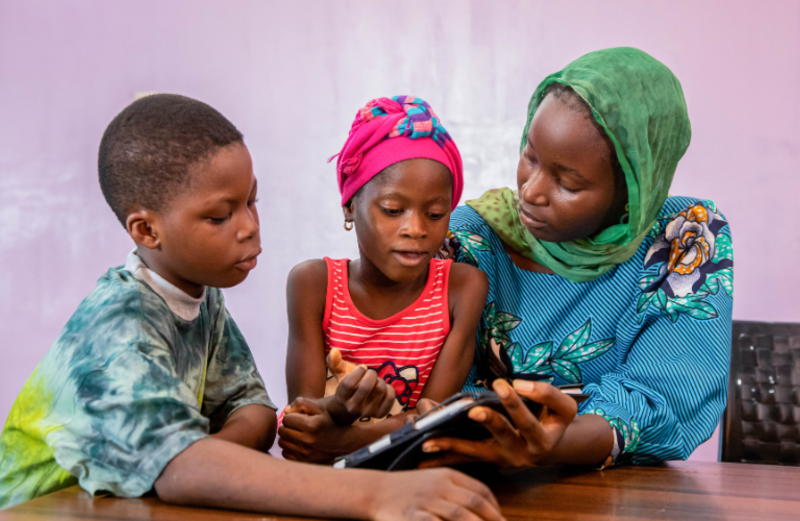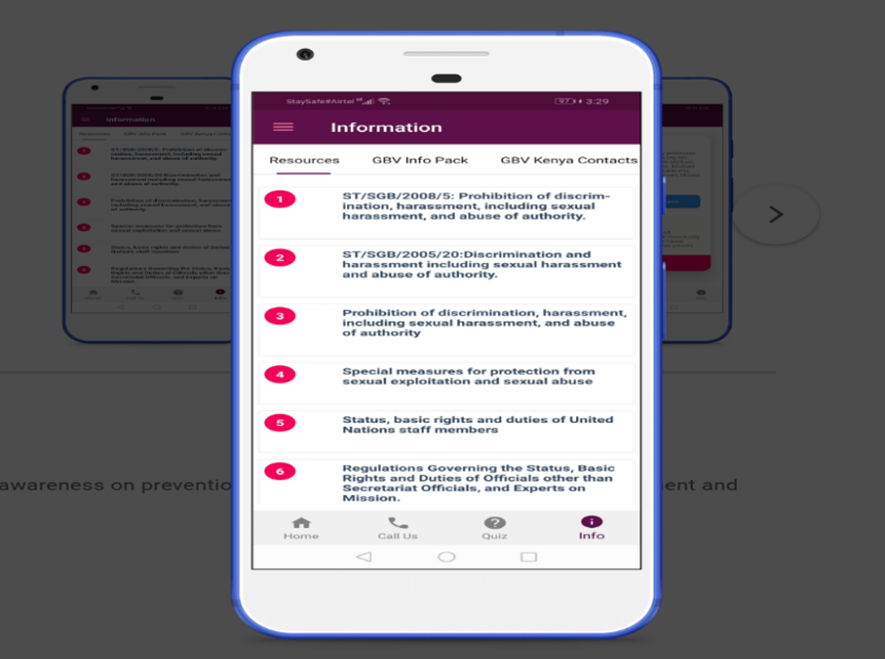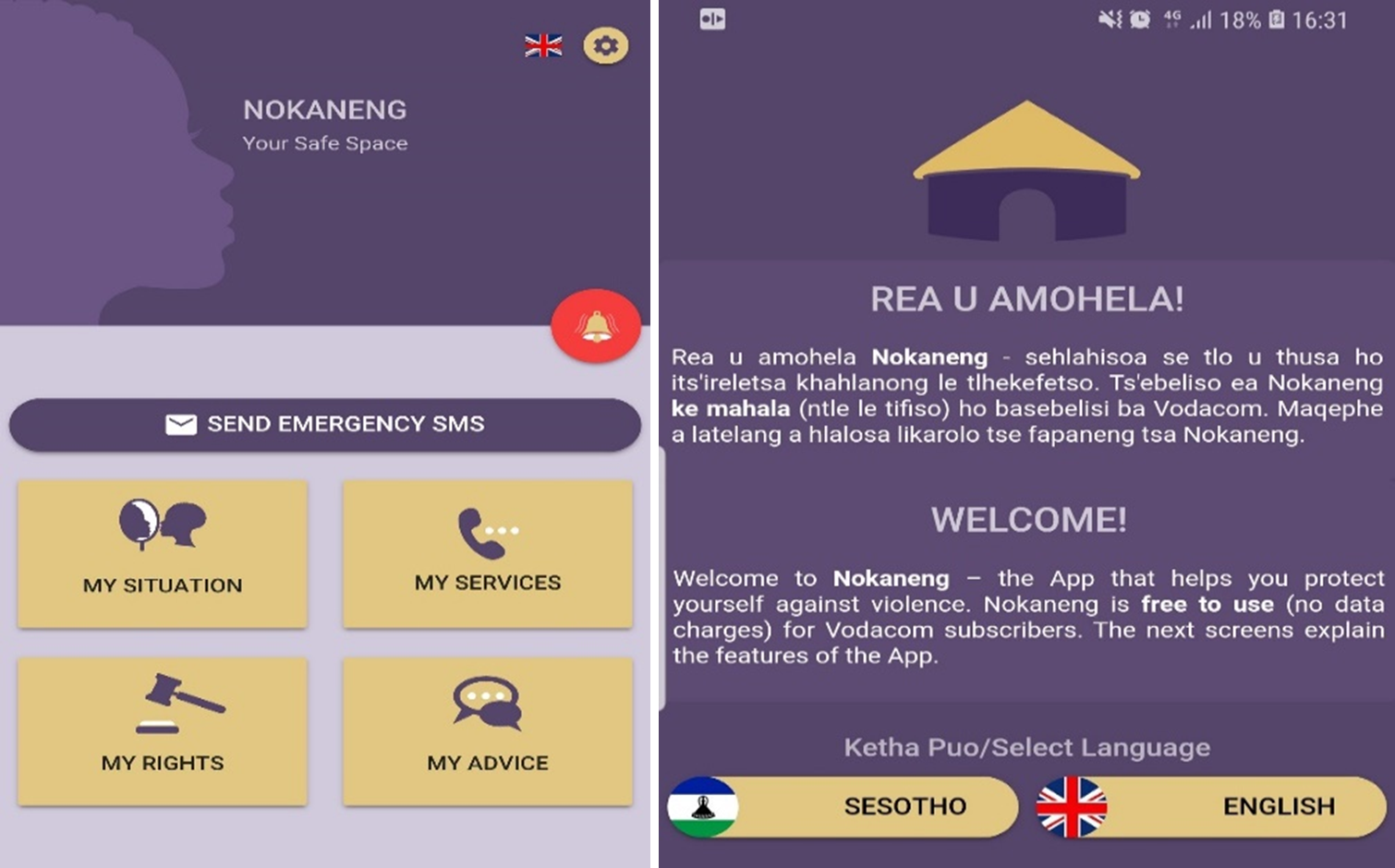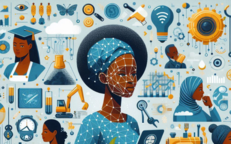Combating School-Related Gender-Based Violence In Africa Using Digital Technologies

This is the 12th post in a blog series to be published in 2023 by the APET Secretariat on behalf of the AU High-Level Panel on Emerging Technologies (APET) and the Calestous Juma Executive Dialogues (CJED)
The African Union (AU) Agenda 2063 is a blueprint for the continent’s development that prioritises gender equality. Among the AU Agenda 2063’s seven aspirations, Aspiration 6 and Goal 17 are particularly focused on achieving complete gender equality to foster people-driven development in Africa. To this end, AU Agenda 2063 lists two major priority areas of empowerment of women and girls, which are ending gender-based violence (GBV) and discrimination against women and girls.[1] This is because GBV is a grave concern in Africa, disproportionately affecting women and girls. To this end, the AU is committed to ending GBV by raising awareness of its harmful effects, providing support to survivors, enacting laws that protect women and girls, and holding the perpetrators of GBV accountable. Furthermore, the AU is committed to eliminating discrimination by facilitating equal access to education, healthcare, and employment for women and girls, promoting their involvement in decision-making processes, and changing social norms that perpetuate discrimination against women and girls.[2]
Despite advances in decision-making and interventions, however, African women and girls still face the persistent challenges of GBV and discrimination. One of the most common forms of GBV is School-Related Gender-Based Violence (SRGBV). SRGBV encompasses sexual, physical, and/or psychological assaults or threats that take place in or near schools and are motivated by gender stereotypes and norms that are upheld by unequal power dynamics[3]. Despite schools being recognised as sites of personal development, learning, and empowerment, these places of learning tend to perpetuate forms of violence and prejudice, particularly with a bias against girls. SRGBV is a fundamental violation of human rights, especially those of young women and children, and acts as a significant barrier to achieving gender parity, inclusive education, and participation in learning.[4]
Alarming statistics reveal that between 46% and 78% of adolescent girls in African schools have experienced some form of SRGBV.[5] Unfortunately, SRGBV has very serious negative effects on female students' life, such as grief or depression, low self-esteem, early and unwanted pregnancies, and sexually transmitted infections such as HIV/AIDS. Consequently, many female students turn to avoid schools, perform below their ability in their studies, or drop out entirely due to this violence which invariably influences the educational achievements of female students negatively.
Despite its prevalence and significant health implications, SRGBV remains under-reported as a societal challenge. Numerous factors contribute to this under-reporting, such as shame and stigma, financial obstacles, the idea that offenders would always get away with the offence or crime, a lack of awareness or access to existing interventions and resources, cultural beliefs, the risk of losing children, and concern about getting the offender in trouble with the law. These are all obstacles to reporting or seeking help from formal interventions. Furthermore, many girls and young women also regard violence as routine or not serious enough to disclose, there is also fear of retaliation. Lastly, victims encounter prejudice and stereotypes when seeking help from legal and law enforcement settings.
Recognising the urgency in addressing the under-reporting and negative health consequences of SRGBV, the African Union High-Level Panel on Emerging Technologies (APET) identifies several essential solutions aimed at reducing SRGBV and increasing girls’ educational outcomes. These interventions include, but not limited to the following: promotion of awareness campaigns and educational programmes that can enhance the understanding of SRGBV, its consequences, and available support services. Such initiatives can be implemented through school curricula, community workshops, and media campaigns to empower individuals to recognise and report incidents of violence. African countries can also enhance existing support systems for survivors of SRGBV by providing safe spaces, counselling services, and helplines. Furthermore, governments should advocate for comprehensive legal frameworks that specifically address SRGBV and ensure the protection of survivors. This includes establishing clear guidelines for reporting, investigation, and prosecution, as well as protection measures for survivors and witnesses.
Furthermore, there is a need to engage local communities, religious leaders, and traditional authorities in addressing SRGBV. By promoting community dialogue and challenging harmful cultural beliefs and norms, it becomes possible to create an environment that supports survivors and condemns violence. Additionally, the Ministries of Education should provide comprehensive training for teachers, school administrators, and law enforcement personnel on recognising and responding to SRGBV cases sensitively and effectively. This includes addressing biases, prejudices, and stereotypes that may hinder the reporting and support process. This can be accomplished by conducting comprehensive research and data collection on SRGBV to better understand the prevalence, causes, and consequences of such violence. This information can inform evidence-based interventions and policies. This can be undertaken by fostering partnerships between government agencies, civil society organisations, schools, and community groups to coordinate efforts and share resources in combating SRGBV.
Collaboration can also help amplify the impact of interventions and ensure a holistic approach. APET realises that these African-centred solutions can effectively address the under-reporting of SRGBV, dismantle barriers to reporting and seeking help, and create safer environments for women and girls in schools and communities.
Considering the alarming statistics on SRGBV, APET urges African countries to leverage digital technologies to promote women’s voices and enhance intervention. The panel notes that digital technologies are offering various opportunities to address the under-reporting of SRGBV within African countries and create safer environments for young women and girls. For example, mobile applications provide a safe and confidential platform for reporting SRGBV incidents. These applications are also offering information on available support services, helplines, and legal resources. For instance, in South Africa, the "SafeNcitement" application allows students to report incidents of violence anonymously and provides access to counselling services.
While specific statistics on the impact of mobile apps in addressing SRGBV in African countries may vary, these technologies have the potential to improve reporting rates and connect survivors with available support services. An example is the "Speak Up" application in Kenya, which reported an increase in the number of reported cases of sexual violence following its launch. This indicates that such technologies can encourage reporting and access to services.

Figure 1: Kenya’s Speak Up application [6]
APET recommends the development of web-based platforms to facilitate the reporting of SRGBV incidents, ensuring anonymity and providing information on available support services. These platforms can also generate data for analysis to inform evidence-based interventions. For example, the "Break the Silence" platform in Nigeria allows individuals to report cases of sexual violence and access support services, resulting in increased reporting rates. Another successful example is the "U-Report" platform in Uganda, which recorded over 120,000 reports of violence against children within a year of its launch, demonstrating the potential of technology in capturing and addressing such incidents.
The Geographic Information Systems (GIS) and data visualisation tools can be used to map SRGBV incidents, and further identify hotspots and trends. This can help governments and policymakers inform targeted interventions and resource allocation. For instance, mapping SRGBV incidents in schools and communities can assist in identifying areas that require additional support and interventions. The implementation of GIS and data visualisation technologies can provide valuable insights into the spatial distribution and patterns of SRGBV incidents. For example, in South Africa, the "Violence Against Women and Girls (VAWG) Heat Map" project utilised GIS technology to map incidents of violence, leading to improved coordination and response efforts in affected areas.
AI-powered chatbots and virtual assistants can also be employed to provide immediate and confidential support to survivors of SRGBV. These technologies can deliver information, guidance, and resources, ensuring accessibility and availability of support services, particularly in remote or underserved areas. Although specific statistics on the impact of chatbots and virtual assistants in addressing SRGBV in African countries may be limited, these technologies have demonstrated their potential in providing real-time support and information to survivors. For instance, the "Kakuma Virtual Assistant" deployed in a refugee camp in Kenya provided refugees, including survivors of violence, with information on available services and support.
APET observes that the impact and effectiveness of these technologies in addressing SRGBV in African countries may vary. However, these technologies have the potential to enhance reporting, support services, and data collection, ultimately contributing to the dismantling of barriers, creating safer environments, and empowering women and girls in schools and communities. For instance, the Nokaneng app in Lesotho has enabled pupils to view, read, or hear information about various forms of GBV, its effects, services offered in Lesotho, and laws protecting women and girls from violence. The virtual safe zone allows users to share their stories, offer support to other users, and connect with qualified counsellors for help[7].

Figure 2: Lesotho’s Nokaneng application [8]
In Nigeria the UNUSB application allows SRGBV victims to report cases more efficiently and effectively. The platform functions as a mobile and web application that links organisations working in the field with victims and survivors of sexual and gender-based violence in Nigeria. The app provides various forms of assistance, including counselling and legal support. To ensure timely support, the app utilises the user's location to recommend agencies close to the victim.[9] Apart from these digital technologies, African countries have also seen the proliferation of panic buttons and bracelets, which have similarly been developed to enable users to alert others when they are in unsafe situations.
It is, however, important to acknowledge that while digital technologies offer significant benefits, they also come with risks. Hence APET strongly condemns the use of digital technology for cyberbullying, cyber violence, and online harassment. The African continent has witnessed a surge in these incidents with the rapid expansion of the internet. The panel urges African countries to take decisive action by establishing comprehensive cybersecurity measures and implementing policy and regulatory frameworks that effectively combat online harassment.
In conclusion, APET encourages African countries to develop and implement policies that prioritise bridging the digital divide by promoting affordable internet access, improving digital literacy programmes, and ensuring equitable access to information and communication technology (ICT) resources. Implementing comprehensive strategies, such as integrating digital platforms into SRGBV prevention programmes, establishing online reporting mechanisms, and leveraging social media for awareness campaigns, can amplify efforts to address SRGBV and engage wider audiences. By addressing the digital divide and harnessing the potential of digital technologies, African policy and decision-makers can enhance the response to SRGBV and create safer school environments for girls and young women and improve their learning outcomes.
Featured Bloggers – APET Secretariat
Aggrey Ambali
Justina Dugbazah
Barbara Glover
Bhekani Mbuli
Chifundo Kungade
Nhlawulo Shikwambane
[1] https://au.int/en/articles/african-union-prioritises-gender-equality-and-womens-empowerment
[2] https://www.rescue.org/uk/article/what-gender-based-violence-and-how-do-we-prevent-it
[3]https://en.unesco.org/themes/school-violence-and-bullying/school-related-gender-based-violence#:~:text=SRGBV%20has%20very%20real%20consequences,transmitted%20infections%20such%20as%20HIV.
[4]https://www.researchgate.net/publication/338888938_School_Related_Gender_Based_Violence_as_a_Violation_of_Children's_Rights_to_Education_in_South_Africa_Manifestations_Consequences_and_Possible_Solutions
[5] https://www.tandfonline.com/doi/full/10.1080/23311886.2022.2079212
[6] https://play.google.com/store/apps/details?id=org.unhabitat.SpeakUP&hl=en&gl=US&pli=1
[7] https://www.sddirect.org.uk/sites/default/files/2022-03/gbv-and-technology-guidance-final-draft.pdf
[8] https://play.google.com/store/apps/details?id=ls.nokaneng.app&hl=en_GB
[9] https://techcabal.com/2022/06/15/the-mobile-app-improving-responses-to-gender-violence/


